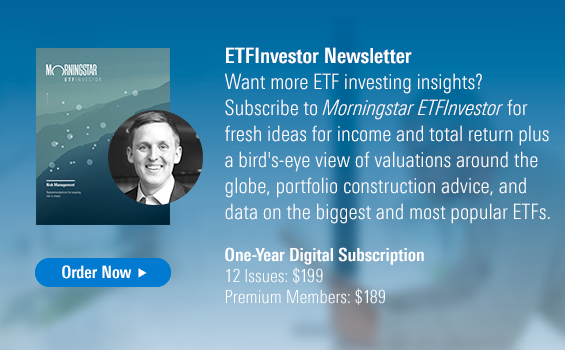Penny-Pinching Index Fund Investors May Pay a Price
Fussing over fees has smaller payoffs as some fund's expenses draw nearer to zero.
A version of this article was published in the February 2017 issue of Morningstar ETFInvestor. Download a complimentary copy of ETFInvestor here.
In early February,
Keen observers will note that this is in line with how Vanguard has priced its Admiral and ETF share classes for those funds that have both. But unlike the Admiral share class of Vanguard’s index funds, which have a $10,000 minimum investment requirement, the newly repriced Schwab index funds will have no investment minimums. These fee reductions make many of Schwab’s index funds the low-cost leaders among those share classes that are available to individual investors.
There is no arguing that fee cuts are good for investors. Every penny that stays out of a fund sponsor’s pocket and continues to compound over time is probably a penny worth fighting for. In the case of a few of the affected funds, the savings are more measurable. For example,
While some might be tempted to save a few bucks with Chuck, it is important to understand that doing so could be hazardous to your wealth. As an example, I did some back-of-the-envelope math to assess the costs and cost savings of a hypothetical switch. First, I assumed that I had invested $10,000 in Vanguard 500 Index five years ago and liquidated the position on Dec. 31, 2016. If this transaction were to occur in a taxable account, this would result in a capital gains tax bill of approximately $1,400. I assume that I then reinvested the proceeds in Schwab S&P 500 Index (which, for the sake of simplicity, I project to grow at 5% per year in perpetuity). In this scenario, it would take nearly 60 years for the 2 basis points in annual fee savings to offset the self-inflicted tax bill I incurred by switching between funds. Note that this also ignores any other costs that might be incurred in making these transactions. The conclusion? For investors in taxable accounts, it pays to think long and hard about being penny-wise.
Existing shareholders in these funds are clear winners in the fee war. But as this race to the bottom nears its inevitable ending (free beta), these investors’ savings will increasingly be measured in dollars and cents. In my mind, these latest exchanges will likely do more to move the needle for fund firms and brokerages like Schwab. In many settings, these low-cost building blocks are simply loss leaders, a cheap gallon of milk meant to entice consumers into the store in hopes that they’ll grab some Cheetos and a pack of gum before they get to the counter. In other cases, they are also the raw materials of proprietary models such as Schwab Intelligent Portfolios.

Disclosure: Morningstar, Inc. licenses indexes to financial institutions as the tracking indexes for investable products, such as exchange-traded funds, sponsored by the financial institution. The license fee for such use is paid by the sponsoring financial institution based mainly on the total assets of the investable product. Please click here for a list of investable products that track or have tracked a Morningstar index. Neither Morningstar, Inc. nor its investment management division markets, sells, or makes any representations regarding the advisability of investing in any investable product that tracks a Morningstar index.

/s3.amazonaws.com/arc-authors/morningstar/a90ba90e-1da2-48a4-98bf-a476620dbff0.jpg)
/cloudfront-us-east-1.images.arcpublishing.com/morningstar/EC7LK4HAG4BRKAYRRDWZ2NF3TY.jpg)
/cloudfront-us-east-1.images.arcpublishing.com/morningstar/T2LGZCEHBZBJJPPKHO7Y4EEKSM.png)
:quality(80)/s3.amazonaws.com/arc-authors/morningstar/a90ba90e-1da2-48a4-98bf-a476620dbff0.jpg)